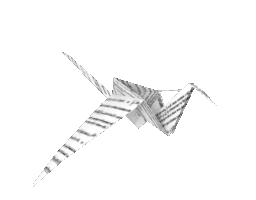All papers authored by Stephanie Mehl

Refreshing results…

2021
Stephanie Mehl  ,
Christopher Hautmann,
Clara Marie Nittel,
Winfried Rief,
Tilo Kircher,
Tania Marie Lincoln
,
Christopher Hautmann,
Clara Marie Nittel,
Winfried Rief,
Tilo Kircher,
Tania Marie Lincoln  Upload
Upload
 ,
Christopher Hautmann,
Clara Marie Nittel,
Winfried Rief,
Tilo Kircher,
Tania Marie Lincoln
,
Christopher Hautmann,
Clara Marie Nittel,
Winfried Rief,
Tilo Kircher,
Tania Marie Lincoln  Upload
Upload




2020
Nico Pytlik,
Daniel Soll,
Klaus Hesse,
Steffen Moritz,
Andreas Bechdolf,
Jutta Herrlich,
Tilo Kircher,
Stefan Klingberg,
Martin W. Landsberg,
Bernhard W. Müller,
Georg Wiedemann,
Andreas Wittorf,
Wolfgang Wölwer,
Michael Wagner,
Stephanie Mehl  Download from doi.org
Download from doi.org
 Download from doi.org
Download from doi.org





Stephanie Mehl  ,
Wolfgang Wölwer,
Klaus Hesse,
Anna-Christine Schmidt,
Martin Wilhelm Landsberg,
Daniel Soll,
Andreas Bechdolf,
Jutta Herrlich,
Tilo Kircher,
Stefan Klingberg,
Bernhard Mueller,
Bernhard W. Müller,
Georg Wiedemann,
Andreas Wittorf,
Wolfgang Woelwer
and 1 other authors
Download from doi.org
,
Wolfgang Wölwer,
Klaus Hesse,
Anna-Christine Schmidt,
Martin Wilhelm Landsberg,
Daniel Soll,
Andreas Bechdolf,
Jutta Herrlich,
Tilo Kircher,
Stefan Klingberg,
Bernhard Mueller,
Bernhard W. Müller,
Georg Wiedemann,
Andreas Wittorf,
Wolfgang Woelwer
and 1 other authors
Download from doi.org
 ,
Wolfgang Wölwer,
Klaus Hesse,
Anna-Christine Schmidt,
Martin Wilhelm Landsberg,
Daniel Soll,
Andreas Bechdolf,
Jutta Herrlich,
Tilo Kircher,
Stefan Klingberg,
Bernhard Mueller,
Bernhard W. Müller,
Georg Wiedemann,
Andreas Wittorf,
Wolfgang Woelwer
and 1 other authors
Download from doi.org
,
Wolfgang Wölwer,
Klaus Hesse,
Anna-Christine Schmidt,
Martin Wilhelm Landsberg,
Daniel Soll,
Andreas Bechdolf,
Jutta Herrlich,
Tilo Kircher,
Stefan Klingberg,
Bernhard Mueller,
Bernhard W. Müller,
Georg Wiedemann,
Andreas Wittorf,
Wolfgang Woelwer
and 1 other authors
Download from doi.org







Clara Marie Nittel  ,
Tania Marie Lincoln,
Fabian Lamster,
Dirk Leube,
Winfried Rief,
Tilo Kircher,
Stephanie Mehl
,
Tania Marie Lincoln,
Fabian Lamster,
Dirk Leube,
Winfried Rief,
Tilo Kircher,
Stephanie Mehl  Upload
Upload
 ,
Tania Marie Lincoln,
Fabian Lamster,
Dirk Leube,
Winfried Rief,
Tilo Kircher,
Stephanie Mehl
,
Tania Marie Lincoln,
Fabian Lamster,
Dirk Leube,
Winfried Rief,
Tilo Kircher,
Stephanie Mehl  Upload
Upload

Fabian Lamster,
Jasmin Kiener,
Katrin Wagner,
Winfried Rief  ,
Simone Carina Görge,
Sarah Iwaniuk,
Dirk Leube,
Irina Falkenberg,
Ina Kluge,
Tilo Kircher,
Stephanie Mehl
,
Simone Carina Görge,
Sarah Iwaniuk,
Dirk Leube,
Irina Falkenberg,
Ina Kluge,
Tilo Kircher,
Stephanie Mehl  Upload
Upload
 ,
Simone Carina Görge,
Sarah Iwaniuk,
Dirk Leube,
Irina Falkenberg,
Ina Kluge,
Tilo Kircher,
Stephanie Mehl
,
Simone Carina Görge,
Sarah Iwaniuk,
Dirk Leube,
Irina Falkenberg,
Ina Kluge,
Tilo Kircher,
Stephanie Mehl  Upload
Upload

2017
Hendrik Müller,
Walter de Millas,
Wolfgang Gaebel,
Jutta Herrlich,
Alkomiet Hasan,
Birgit Janssen,
Georg Juckel,
Anne Karow,
Tilo Kircher,
Stefanie Kiszkenow-Bäker,
Stefan Klingberg,
Joachim Klosterkötter,
Seza Krüger-Özgürdal,
Martin Lambert,
Marion Lautenschlager
and 16 other authors
Download from api.wiley.com
Missing publications? Search for publications with a matching author name.